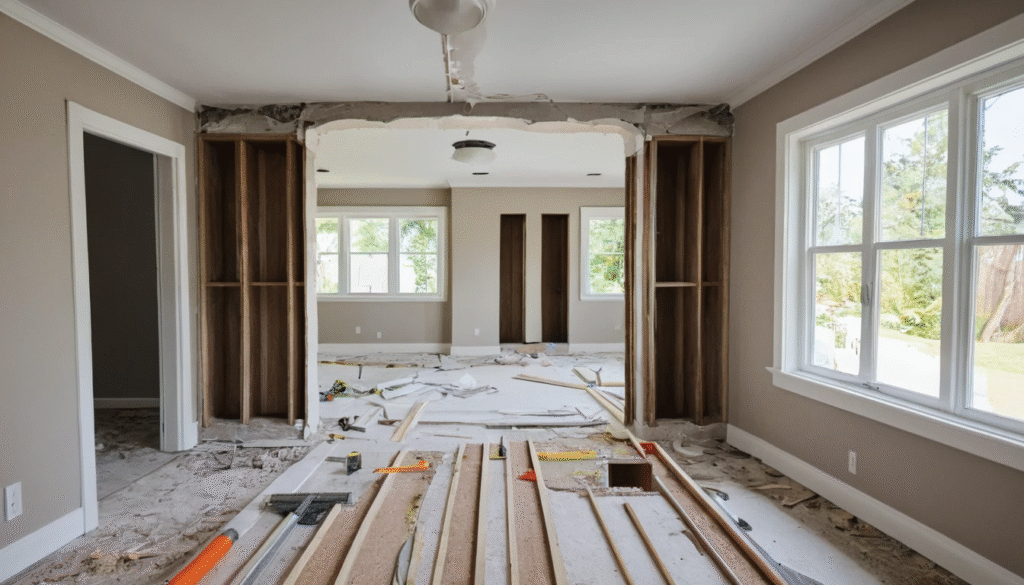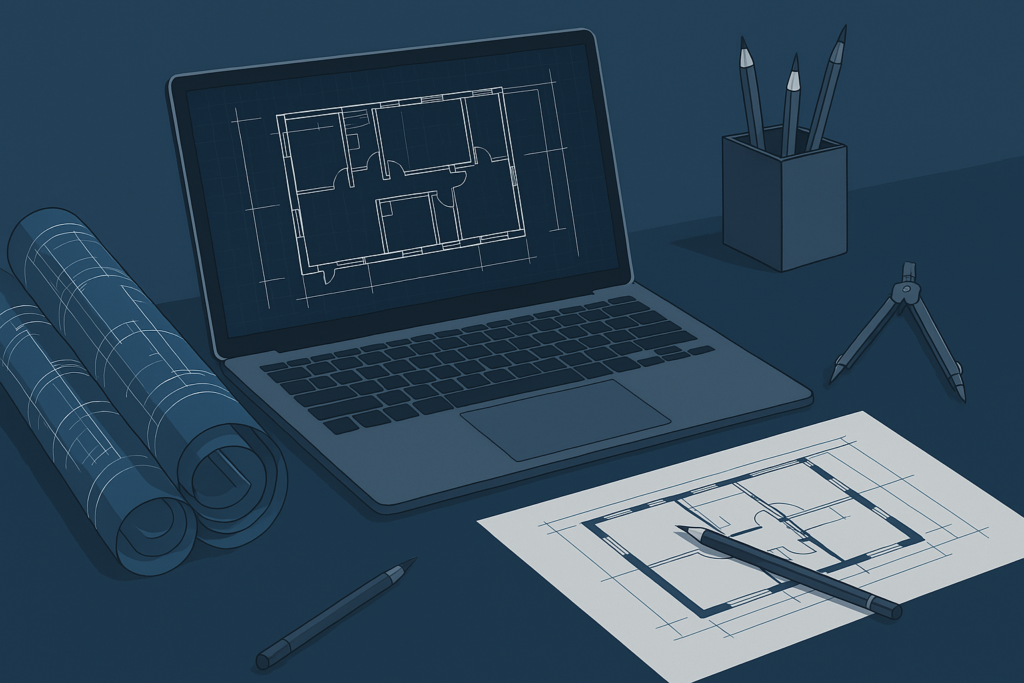Renovating your home can feel exciting, but it often comes with stress and surprises. Whether you’re updating one room or several, it helps to have a clear plan. From setting your budget to picking the right contractor, each step matters. With the right guidance, your project can go more smoothly.
Let’s look at how to manage the process without feeling overwhelmed.
Planning Comes First
Before you call a builder or contractor, take time to figure out what you want. Think about why you’re starting the project. Do you need more space? Are things breaking down? Is it time for an update? Once you have your reason, it’s easier to stay on track.
Now walk through your home and take notes. Write down what you want to fix or add. List your most important items first. You can sort the small stuff later. This step helps you avoid changing plans halfway through.
You also want to think about how long the work will take. If you’re fixing a bathroom, it might be fast. If you’re changing many parts of the house, it could take months. The more you plan, the fewer delays you’ll have.
Create a Budget You Can Stick To
Money matters in every home project. Start by checking how much you can afford. Some people use savings. Others look at loans or credit. Either way, write down your total amount. Be honest and realistic.
After that, begin getting prices. Look online or ask friends who have done similar work. Some parts will cost more than others. Labor, materials, and tools all add up. It helps to break it into groups like plumbing, electrical, or flooring.
Always leave room for extras. Sometimes things break or need more work than expected. Try to save 10 to 15 percent of your total just in case. If you don’t need it, that’s even better.
Pick the Right Contractor
Finding the right person or team makes a big difference. Start by asking people you trust. A friend or neighbor may know someone good. You can also search online, but don’t rush. Look at real reviews and ask questions.
When you meet someone, ask how long they’ve been doing this kind of work. Do they have pictures of past jobs? Can they explain their process? A good contractor should be easy to talk to.
Make sure they are licensed. Ask about insurance, too. If someone gets hurt, you don’t want to be the one paying for it. It’s also smart to ask how many people will be working on your home. Some companies send a team. Others use one or two workers.
Once you find someone you like, ask for a written agreement. It should list what work will be done, how long it will take, and how much it will cost. That way, both sides understand what to expect.
Get Ready for the Work
Once the contract is signed, it’s time to prepare your home. If a whole room is being worked on, you may need to move things out. If you can, store your stuff in a safe place. Cover floors or walls if they might get dirty.
Try to plan how your family will live during the project. If your kitchen is being fixed, where will you cook? If your bathroom is being redone, where will you shower? These little things add up. But if you think ahead, they won’t cause stress.
Talk with your contractor about when workers will arrive and leave each day. That way, you’re not surprised when trucks show up early. If you have pets, think about where they’ll stay. Noise and people may bother them.
Stay Involved From Start to Finish
Even after the work begins, don’t step away. Try to check in daily. You don’t need to be on-site all day, but a few minutes can help. If you’re not living in the home, ask for photos or short updates.
If you see something that doesn’t look right, speak up. Ask questions. Most issues are small and easy to fix early on. Waiting too long can make things harder later.
Also, don’t be afraid to ask for changes, but know they might add time or cost. It’s okay to adjust your plan, but keep track of new ideas in writing. That way, everyone stays on the same page.
Handle Stress Before It Builds
Home projects can feel like too much sometimes. The noise, dust, and delays can wear you out. That’s why it’s good to take breaks. Go for a walk. Spend a weekend away. Give your mind a chance to rest.
Talk to your family too. They may feel stressed, especially if their rooms or routines are changed. Try to keep a positive outlook. Most projects end well, even if a few small things go wrong.
Remember: the goal is not perfection—it’s progress. Keep looking at how far you’ve come, not just what’s left to do.
Final Checks and Clean-Up
As the project wraps up, make time for a full walk-through. Look at each part of the work. If you spot anything that’s missing or done wrong, say something now. It’s easier to fix things while the crew is still there.
Ask for all final papers, too. That includes any warranties, receipts, or guides for new products. Keep them in a folder so you can find them later if needed.
Once all is done, take a moment to enjoy your space. It took time, but you stayed focused and patient. That makes a big difference.
Why Local Knowledge Helps in Miami, OK
Every area has its own rules. In Miami, OK, local contractors often know what’s allowed and what’s not. They also know what types of materials hold up best in the weather. That can save you time and keep your project legal.
Local builders also know who to call for help. Whether it’s an electrician or a plumber, they likely have a trusted list. That helps keep things moving, instead of waiting days for someone from out of town.
That’s why choosing the right person for a home renovation in Miami is so important. Local experts bring more than skill—they bring peace of mind.



